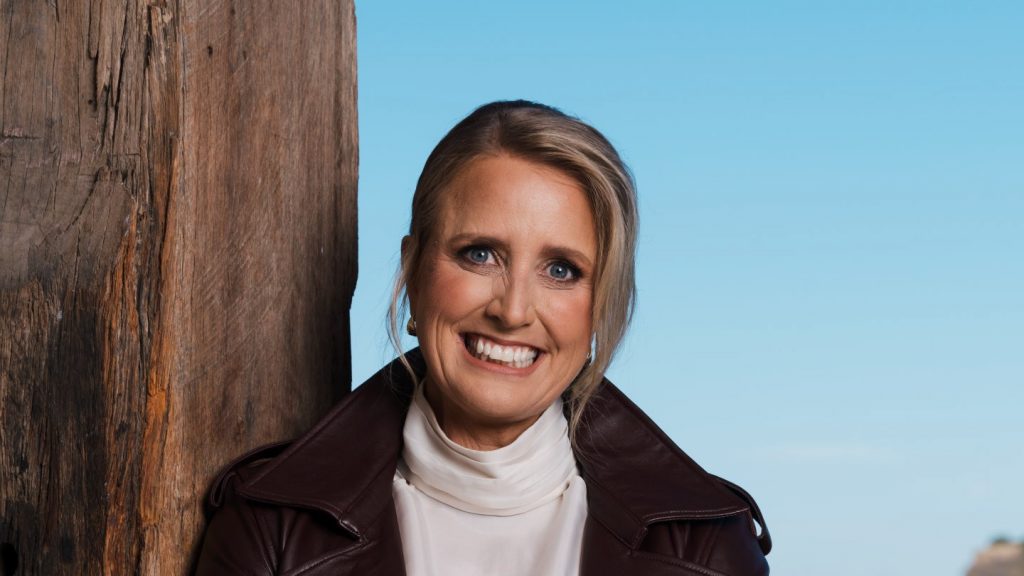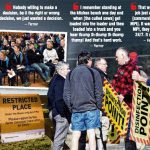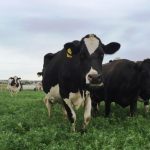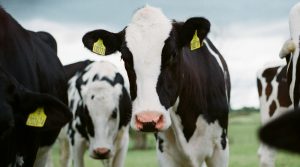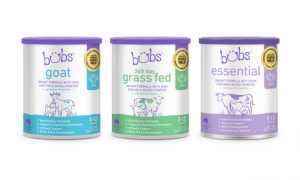
When Kristy Carr scored a ticket to meet Chinese billionaire and Alibaba Group founder Jack Ma, she knew she was in for an experience of a lifetime.
The co-founder and chief executive of organic baby formula and foods maker Bubs Australia was invited to Ma’s retirement soiree in 2019 – which doubled as the 20th birthday of the e-commerce tech giant – held at Hangzhou Olympic Sports Centre. Carr was one of 60,000 people in the crowd, but she actually got the chance to meet Ma.
“He’s an amazing, amazing individual. I was very lucky to get a meet and greet,” Carr tells BOSS.
“I was very flattered that I didn’t have to really explain who I was or what I did. To have that engagement was pretty incredible.”
There was no talk of business, just a few minutes of meeting Ma in the VIP ticket area (which seated about 1000 people) before the rockstar entrepreneur jumped on stage. The exchange left Carr feeling wrapped in “beautiful energy”.
Carr snared her ticket through Steve Lin, managing partner at Hong Kong-based firm C2 Capital Partners, which controls 15 per cent of the fast-growing formula and foods group.
Alibaba is an anchor investor in C2 Capital, looking to capitalise on China’s middle-class consumer boom.
Other backers in Bubs include Kerry Stokes’ family investment vehicles ACE/Wroxby, and retail giant Chemist Warehouse, with which Bubs penned an equity deal last year. Another investor is the group’s only corporate daigou partner, AZ Global, who also works with rival The a2 Milk Company.
Carr, 48, a former advertising and public relations executive, co-founded Bubs with her sister Lisa and Shakespeare Pies founder Anthony Gualdi 16 years ago after she became dismayed at the food range on offer for her new baby. The trio each invested $50,000, but only Carr is now involved in running the business.
In 2017, Bubs listed at 10¢ a share, and was considered a promising brand in a fast-growing category with the right strategic partners. By April 2019 its shares were pushing $1.50 as the group expanded into organic cow’s milk formula and penned an equity deal with Chemist Warehouse, which would stock all 40 of its products.
COVID-19 crunch
But Bubs, like its rivals that relied on the diagou personal shopper networks for their access to Chinese consumers, was smashed when COVID-19 struck and the slew of international students and Chinese tourists disappeared overnight as borders shut.
The shares are currently trading at about 40¢.
Carr says it was not until this past Christmas that she was able to move beyond crisis management and start to work on the company’s longer term vision.
“I walked down the baby aisle and just thought my goodness, the only thing there is what looked like odourless, tasteless, glue in a jar.”
— Kristy Carr, Bubs CEO
Luckily, Carr claims, Bubs had everything it needed to get through that tough peak of COVID-19 – including a board led by “visionary” executive chairman Dennis Lin.
“I had an entrepreneurial spirit running through the organisation, which was always our secret to success, which has always been around our agility,” she says.
The company was also cashed up, having raised $150 million-odd in fresh capital over the past three years. This allowed Carr to spend about $35 million in a cash/script deal to buy canning facility Australia Deloraine Dairy in Melbourne as part of its vertical-integration play in April 2019 – well before COVID-19 struck.
Carr – who lives in Sydney’s northern beaches and likes to stand-up paddle board and ski – likens the pandemic to being caught in a rip.
“You can waste a lot of energy and resources if you try to swim against that rip. But if you are calm, and you go with the tide, and you are very alert to all of the environmental dynamics around you, then you can set yourself up for the right time to break free when the rip let’s you go,” she says.
Changing priorities
Carr insists that while the $US37 billion Chinese infant formula market remains important, she has developed a strong Australian consumer base which was pivotal in helping Bubs through the COVID-19 rip.
About half of Bubs’ sales are generated in Australia. Just over 30 per cent come from direct exports to China and roughly 20 per cent of sales are derived from other international markets such as Vietnam and South Korea.
“I think we’ve tripled our market share in Australia in Coles, Woolworths and Chemist Warehouse combined during the COVID year, whilst we’re now the sixth-largest formula manufacturer in Australia,” she says.
Priorities have changed. Pre-COVID-19 management was focused on obtaining registration from Chinese authorities to distribute infant formula through physical stores.
Now Carr is redirecting investment as Asian consumers increasingly shop on sites like Alibaba’s Tmall or its social e-commerce platform Taobao, and an emerging area of online-to-offline, where a customer goes to the shop, sees the product, scans the QR code and tins get delivered to their door within hours.
Carr believes there is no reason why the retail daigou channel will not pick up again once borders reopen, despite the political tensions between Canberra and Beijing.
“I had to ask myself a number of times over the course of the year: ‘Is the consumer demand for Bubs’ products still there in China?′ Absolutely, hand on heart, I know 100 per cent it is,” she says.
Finding a niche
Bubs’ niche but growing goat milk baby formula is its hero product. The company accounts for about 7.5 per cent of the world’s goat milk powder production and produces more than 65 per cent of all of Australia’s goat milk products.
The company also offers organic grass-fed cow’s milk formula, and toddler cereals and snacks like cheese Little Bickies and Little Rollies coconut bars.
In 2020, it launched Vita Bubs children’s vitamins, snaring model Jennifer Hawkins as a brand ambassador. Bubs also works with Chinese brand influencer NicoMama, who has 30 million social media followers and can sell up to 10,000 tins of formula in one live stream.
Carr is sticking with her aspirational goal of $400 million in revenue by 2025, which is about three times Citi’s current fiscal 2025 forecast of $123 million.
I missed out on investing in Bellamy’s Organic and I wanted to find something similar to invest in, and take it to China.
— Albert Tse, early investor and director in Bubs
It will not be easy given long-term headwinds including domestic Chinese brand resurgence, regulatory uncertainty and geopolitical risks.
Bubs expects to post moderate second-half sales growth after first-half revenue tumbled 33 per cent and bottom-line losses.
Carr expects to return to more aggressive growth next financial year, when daigou sales are tipped to return to pre-COVID-19 levels.
Carr grew up in Newcastle, north of Sydney. Her mother was a primary school principal and her father worked as an executive in what was then fertilisers group Incitec Ltd (now ASX-listed Incitec Pivot).
Her first job was with ad man John Singleton in Sydney, where she was a media buyer. Carr then took a gap year with Jeremy (her now husband), which sparked their life-long interest in travel and in Asia. The pair worked for US ad agency McCann Erickson in Hong Kong for more than a decade. Carr worked on key account Cathay Pacific as head of communications.
By 2005, Carr was pregnant with her first daughter, whom she wanted to be born in Australia, so she gave up her high-flying job and moved home.
“I went to feed my baby for the first time … and I walked down the baby aisle and just thought my goodness, the only thing there is what looked like odourless, tasteless, glue in a jar,” she says.
“I looked on the back of the label, and I didn’t understand three or four of the ingredients and I said I cannot feed this to my child. I wanted to recreate what I’m eating, but for her. That is where the concept [for Bubs] came from.”
Early investor support
Investment banker turned investor Albert Tse was an early investor and director in Bubs. When he met Carr and Gualdi in 2014 the company was at serious risk of failing because its organic pouch business had just been deleted by a major retailer and was struggling to find the right partners in China.
“I missed out on investing in Bellamy’s Organic and I wanted to find something similar to invest in, and take it to China,” says Tse, who runs Wattle Hill Capital.
Tse says Lin and Carr are doing a very good job in a tough market.
“Kristy has really grown into this CEO role. She brings a start-up spirit to corporate Australia. She is compassionate, passionate and highly intelligent,” he says.
Indeed, Carr has come a long way from when she started drawing the little Bubs smile logo on a napkin over a bottle of wine with her husband on the lounge room floor in 2005.
“I looked up at him and said I think this could be a billion-dollar idea. And I think now, actually, that’s just a very small number,” she says. “My aspirational target is much larger these days.”
